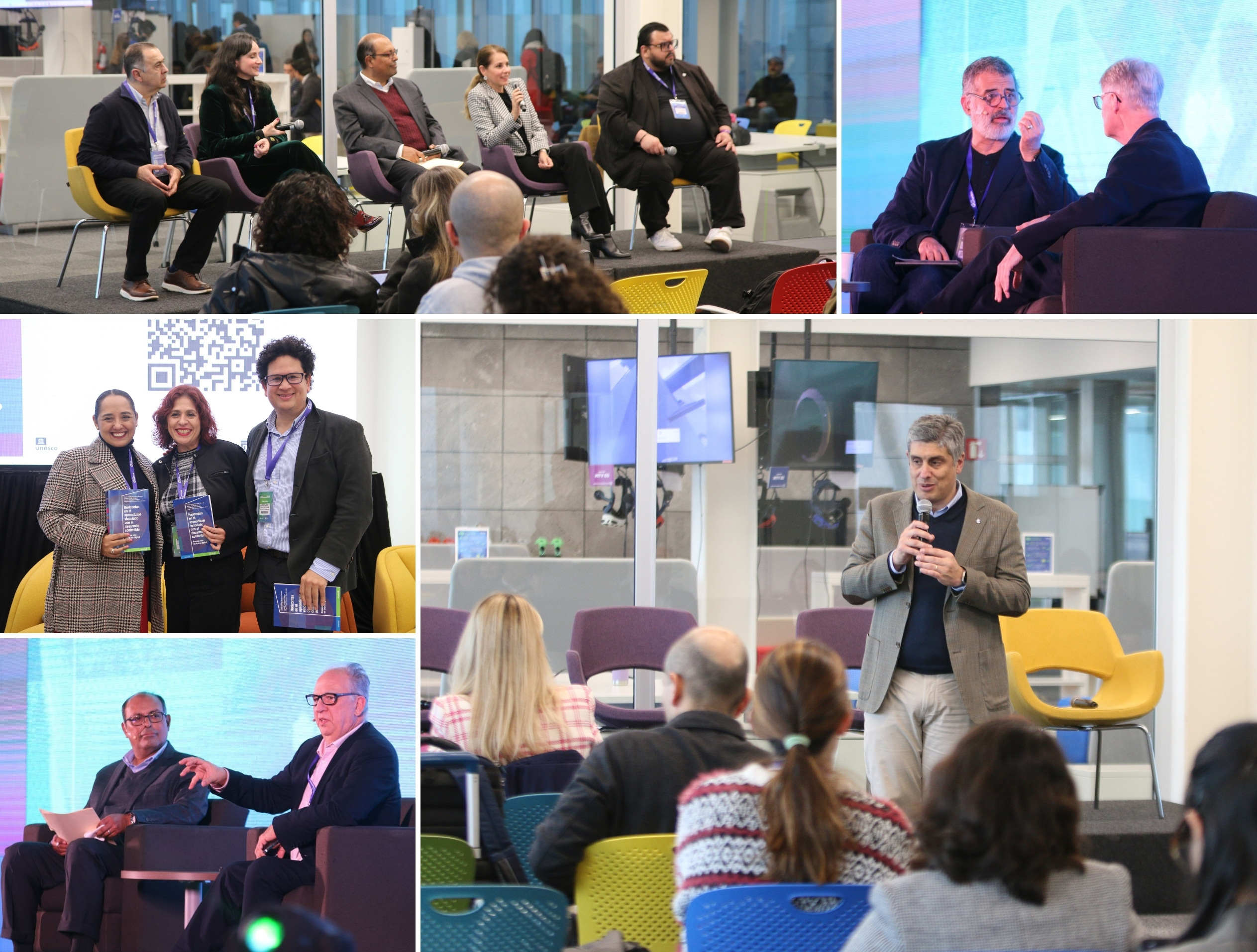The faculty of EGADE Business School shares insights on educational innovation, talent, and the future of work.
By JOSÉ ÁNGEL DE LA PAZ | EGADE BUSINESS SCHOOL
The IFE Conference 2025, themed "Shaping the Future of Education with Innovation and Technologies," brought academic leaders, researchers, and experts together to explore the trends redefining learning and the labour market.
Now in its 11th edition, the conference, organized by the Institute for the Future of Education (IFE), took place from January 28 to 30 at the Tecnológico de Monterrey campus.
Professors and executives from EGADE Business School participated in various activities, sharing perspectives on education, talent, innovation, and the future of work.
TALENT AND THE FUTURE OF WORK
The Talent and Future of Work Summit was inaugurated by Horacio Arredondo, Dean of EGADE Business School and the Undergraduate Business School of Tecnológico de Monterrey, who invited attendees to rethink how talent is being developed in response to labor market shifts driven by technological disruption, artificial intelligence, automation, and industry relocation.
"At Tecnológico de Monterrey, we have embraced challenge-based learning models, where students develop critical skills by solving real-world problems in collaboration with companies and organizations," emphasized Arredondo, who is also a member of the International Advisory Board of the Institute for the Future of Education (IFE).
As part of the same summit, Osmar Zavaleta, Associate Dean of Research at EGADE Business School and the Undergraduate Business School of Tecnológico de Monterrey, and Lucila Osorio, Research Professor and Director of the Department of Marketing and Business Intelligence at EGADE Business School, participated in the panel "University Students: Thoughts and Expectations for the Future." They discussed the concerns and aspirations of new generations in an ever-evolving job market.
EDUCATIONAL INNOVATION
The book Horizons in Learning Linked to Sustainable Development: New Pathways in the Digital Era was presented during the IFE Conference.
This book includes the chapter "Minecraft as a Game-Based Learning Tool: Analyzing Its Impact on the Development of Critical and Creative Thinking in Problem-Solving for Sustainable Development Goals (SDGs)," co-authored by Eloísa Pérez González, Director of Educational Innovation at EGADE Business School, and Jairo Orozco Triana, Professor in the Department of Entrepreneurship and Technological Innovation at EGADE Business School, along with other colleagues.
The study results highlight Minecraft's impact on academic experiences for graduate students at EGADE Business School between 2022 and 2023.
En la charla ‘¿Cómo será el futuro del trabajo?’ Juan Ignacio pregunta: ¿Para qué preparamos a nuestros estudiantes? ???? Más que cumplir tareas, deben desarrollar criterio. La IA es clave, pero la decisión humana sigue siendo esencial. ???????? #IFEConference pic.twitter.com/Jn2ezfmHGq
— IFE Conference (@IFEconference) January 29, 2025
META-SKILLS: THE KEY TO THE FUTURE OF WORK
At the fireside chat "What Will the Future of Work Look Like and How Can We Prepare Students for It?", Juan Ignacio Sánchez, Distinguished Visiting Professor in Organizational Behavior and Human Capital at EGADE Business School, emphasized the importance of developing meta-skills to help professionals adapt to dynamic work environments.
"Today, we give employees objectives, but we rarely tell them how to achieve them," Sánchez stated in a conversation with Osmar Zavaleta.
Zavaleta underscored the importance of preparing students for a changing labour market, where strategic decision-making is crucial.
Sánchez stressed that education must become more interdisciplinary to foster flexible thinking. "Giving students a rigid identity, like 'I am a biologist' or 'I am an engineer,' is problematic. We need them to see the world in an interdisciplinary way," he explained.
On the evolution of hybrid work, Sánchez pointed out that new skills are needed for remote team management: "Remote supervision skills are not the same as on-site supervision skills."
Finally, regarding nearshoring, he warned that Mexico must focus on offering products and services with high added value to remain competitive. "Relying solely on lower labour costs in Mexico won't work," he concluded.
En la charla "Education for Human Flourishing", se reflexiona sobre cómo la educación debe evolucionar para apoyar el florecimiento humano en un mundo impulsado por la IA, repensando competencias, enseñanza y diseño de nuevos sistemas.???????? #IFEConference pic.twitter.com/5j5iqk5zxe
— IFE Conference (@IFEconference) January 31, 2025
EDUCATION FOR HUMAN FLOURISHING
At the closing of the IFE Conference, Enrique Tamés, Professor in the Department of Strategy and Leadership at EGADE Business School, and Michael Stevenson, Senior Consultant at the OECD for High-Performing Systems for the Future, participated in the fireside chat "Education for Human Flourishing."
During the conversation, Stevenson argued that education should prepare individuals for a morally purposeful life rather than focusing solely on personal well-being.
"Discussing human flourishing is not about individual well-being, but about well-being in community, in human interactions," said Stevenson.
For his part, Tamés explained that human flourishing is a broad concept that fosters the development of various competencies to achieve the best version of oneself, society, and the planet.
This discussion aligns with the OECD's High-Performing Systems for the Future initiative, which seeks to redefine the purpose of education in response to advancements in artificial intelligence and other global transformations.
